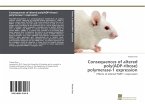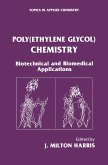Polyadenylation is a process common to almost all organisms. In eukaryotes, stable poly(A) tails are added to the 3' end of most mRNAs, which is important for mRNA stability and translation initiation. In contrast, polyadenylation can stimulate RNA degradation; a phenomenon witnessed in prokaryotes, organelles and nucleus- encoded RNA. In general, this decay process consists of sequential events including endonucleolytic cleavage, the addition of degradation stimulated poly(A) sequence to the proximal cleavage products, and rapid exonucleolytic degradation. The results of this work brought us to suggest a possible scenario for the evolution of polyadenylation.
Bitte wählen Sie Ihr Anliegen aus.
Rechnungen
Retourenschein anfordern
Bestellstatus
Storno








